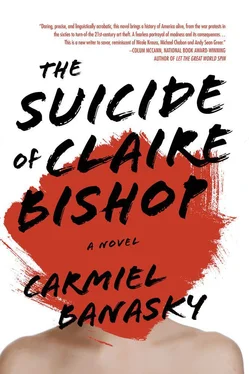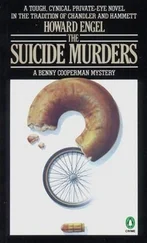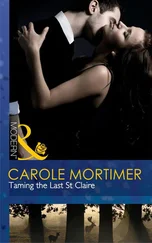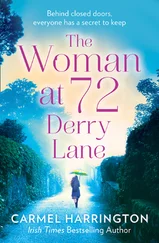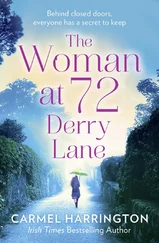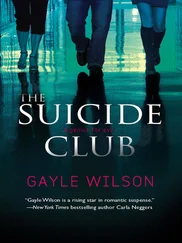“I guess Jules called you,” I say.
“You disappeared on her, and now you show up here with hardly any warning—”
“Now I’m in trouble for visiting you?”
“No one’s in trouble. But you can’t blame her for worrying.” She glances at me then away. “She made me promise to take you to the hospital in Seattle.”
“But you’re not going to, right? You know how hospitals are. They make a zombie out of you.” These are my mom’s own words. I give her my most winning smile. “I have some things to do, and I want to spend time with you.”
An undercover police car drives slowly by. I shield my face with both hands.
“You’re a cheese ball. You didn’t get that from me.” She sighs dramatically. “We’ll see. I never know what’s going on with you two. All I have is my imagination. It’s not fun to think of all the horrible things that can happen to your children.” She smiles at the road. “But it’s my turn for surprises. I have something for you.”
I’ve never liked her surprises. Insects suicide into the windshield. One swerves around inside the van, looking for a feast. I swat my arms and legs in anticipation of a bite.
But at least it’s not dangerous — the insect or my mom. Of all the people in my life, she poses the least threat. She’s bottomed out the dangerlevel chart, paler than the palest, safest green. How much she annoys me demands its own color-coded system.
“So Jules didn’t tell you any news?” I ask.
“About what?”
“Nothing.” I curl both lips between my teeth and bite — I will not tell her that Jules is in trouble. Or pregnant. There’s no point in worrying her. “You think Dad’s around?”
“Something is different with Jules though,” Mom says. “She used to call at least once a week.”
Just as I’m thinking of my dad, we whiz by the dairy he worked at when I was a kid. He used to pack me lunch-boxfuls of those black cookies they use for ice cream sandwiches, sans ice cream, when he could snatch a few pounds of them from the processing room. When Mom was depressed or too busy with her protests, that’s what I’d get for lunch. But every kid in school wanted to trade, so sometimes I ate two sandwiches if I got a good deal.
The roadside forests whip by unblinking. She says, “You can talk to me about stuff, you know. I’m seeing a therapist. She says you have the tools to talk to me and you choose not to.”
We pass the paper mill where my dad works now, close to town. You can’t see it from the road, but we get a big whiff of it — the wind is just right. The smell fills our part of town, piling up in the air on humid days, blanketing everyone, no matter how thick your windows.
“Smells like home,” I say.
“So talk to me. You’ve been feeling good? Everything’s okay?”
“I’m fine. Jesus.” I cross my arms. She thinks I’m lying.
I’ve been worrying about seeing my old friends, but hadn’t thought my mom would be one of the people who would look at me differently, a specimen. Now she’s searching for some change in my face. Waiting for me to do something psycho. To her dismay, I sit here like any normal person swatting at imaginary bugs. But she doesn’t need to worry — she’s never believed in medication, and now I’m almost off.
We veer onto a gravel street, abandoned toys sprawled across and bikes with tires stolen in years prior, tied to chicken-wire fences.
“It’s not the greatest, but it’s home,” she says, pulling into the driveway of a small yellow shack just as a Volvo drives by. I squat low in my seat so I can’t be seen. But not every car is an undercover police officer working for the Hasids, not here anyway. I’m one step ahead of them.
It’s Mom’s third rental since Jules and I left. I hadn’t thought of that — how will I return to my origin if I can’t go to my childhood home? But calm down, Nicolette is calling out to me through time. She wants to be found! The house is edged with unkempt shrubs, tying its sides in the shadow-sleeves of a straitjacket.
“Don’t you want your surprise?” she says.
I really don’t. We climb out; she struggles with the house keys, drops them twice and laughs. “I guess I’m nervous.” When she finally gets the front door open, I step ahead into a small, barely furnished living/dining room connected to a grimy kitchen. There’s cat hair billowing along the edges of the floor. It reminds me of fake snow used for storefront Christmas decorations. So much fur but no cats in sight.
“How many do you have now?” I ask.
“Only four. Scaredy-cats, all of them. Come on.”
The landline lets out a whiny ring.
“Don’t answer it,” I say.
“Why would I? Someone trying to sell me something. Don’t they know I’m broke?”
“Might be the cops.”
“Very funny.” She throws my messenger bag on the couch — I swear I see a plume of dust rise up around it — and I set the painting tube carefully on top. Then she leads me down the hall to the second door. She takes her time, attempting to be dramatic. “Ta-da,” she sings as she swings it open.
And there is my childhood bedroom. I’ve stepped back in time, just like that. My old desk is against the wall, the top covered with messages I’d carved out to my future self when I was young. I tiptoe to it and run my hand over the rough markings, all the scissor stabs and whirlpools. My old comic books are in their plastic sleeves and special filing case. And I used to have a bin of — there it is, right where I left it — broken electronics. Machine parts I’d taken apart and tried to put back together — a broken telephone, a lamp skeleton. Even my toy cars are crammed in a box with my sister’s shabby dolls, which I always preferred over the cars. The only difference is a poster with a large dove reaching its wings around the world — my mother’s touch.
Like a museum installation, or a crypt, here is my childhood, replicated inch by farcical inch. The room could be one of Nicolette’s installations. It’s something she would do. And this time, that’s not just a whimsy-lovey thought. She had a hand in this.
It must be the portal. This is how I find her.
“Look.” My mom almost hops to the desk chair where she’s draped my old jean jacket. “I found it in a box in storage with the rest of this stuff.” On the back are hand-painted cows standing in a field. Over them, in bubbly cloud-letters, are the words, Not until the cows come home . “You wanted to be a cowboy, remember that?”
Is that the point of original pain? The object ascribed to it? I remember the jacket as the prop for my first act of independence. I remember my sticky elementary school like an extraneous organ. Third grade — my teacher told me to put on my coat for recess and I said, No . It was probably freezing outside but that wasn’t the point. It was the moment when you realize you’re not so powerless to mother or teacher as you previously thought. I will not be put up for adoption or tossed to the side of the road like an unwanted cat if I say no.
“I hated that jacket,” I say, and immediately regret it. Mom looks like she’s about to cry. She’s so sensitive I want to twist her nose for it. Is causing her pain getting me closer to time traveling? It’s how I sometimes acted back then. But, no, I’ve always appreciated her sensitivity.
Is that act of independence when we first begin to know ourselves? Is that first knowing the original pain?
My mother folds the coat with her eyes closed, trying not to cry.
Or do we not know ourselves until later, when defiance runs deeper, when we’re aware we’re happiest when that spell of dependency is severed completely? At sleep-away camp or the second day of high school. Or is it when we dissolve our dependency to something more abstract, like reality? Is it when we learn to lie?
Читать дальше
